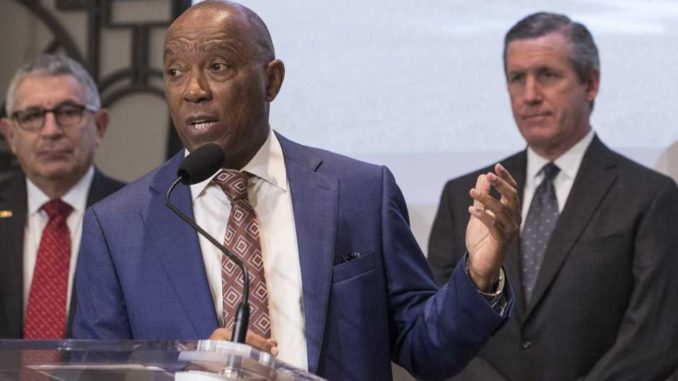
Houston Forward Editorial Board – The black community is being hit hard by COVID-19. In neighborhood after neighborhood across the country, the virus is claiming the lives of African-American educators, activists, bus drivers, grocery store workers, police officers, preachers, politicians and pioneers .
In St. Louis, all but three of the 19 people who died of COVID-19 as of last week were black. In Louisiana, African Americans make up 70 percent of deaths but are only 33 percent of the population.
In Houston and Harris County, nearly 40 percent of the people who died from COVID-19 were African American. Only 20 percent of Harris County is black.
This crisis within a crisis is exposing and exacerbating the social and structural inequalities that undergird every part of American life and make African Americans more vulnerable to the virus that has claimed more than 42,000 lives in the United States.
Many black Americans live in densely populated communities without easy access to grocery stores, green spaces or equitable health care. They make up about one-fourth of public transit users and are more likely to be part of the “essential workforce” as bus drivers, cashiers and other jobs that heighten risk.
African Americans also have higher rates of underlying conditions such as diabetes and high blood pressure that increase severity of illness. They’re more likely to be uninsured, and often report that doctors take their pain less seriously.
Those factors are a legacy of segregation, redlining and racial discrimination that kept African Americans from owning homes, moving up the economic ladder and holding certain jobs.
As Harris County Precinct 1 Commissioner Rodney Ellis told the editorial board, “The broader inequalities that have existed for hundreds of years are simply being amplified by COVID-19.”
Immediate steps must be taken to address the disparities.
Civil rights leader the Rev. Jesse Jackson and the National Medical Association, which represents black doctors and patients, called for better COVID-19 testing and treatment data. Jackson also supports a national commission to study the black COVID-19 toll. Democratic lawmakers, including U.S. Rep. Ayanna Pressley and Sen. Elizabeth Warren, have also asked for comprehensive demographic data.
Getting that data is imperative so that public health officials and elected leaders better understand who is most affected and take action. In Harris County, incomplete data make it difficult to get a full demographic picture of COVID-19 cases.
Front-line workers, such as grocery store cashiers, delivery people, home health aides and sanitation workers, must also be guaranteed paid sick leave so they don’t feel they must go into work sick or risk losing their jobs. In some cases, employers should offer these workers hazard pay for the risks they’re taking on the job.
Rashawn Ray, an associate professor of sociology at the University of Maryland in College Park and a fellow at the Brookings Institution, also suggests enlisting black churches, often trusted institutions within the community, as sites for testing, treatment and raising awareness about the virus.
Elected leaders, public health officials and health care providers must work together to fight the virus in black communities — and to dismantle the underlying inequities feeding the spread. Texas can begin by heeding calls by black lawmakers to revive the Office of Minority Health Statistics and Engagement, which studied inequities in state health agencies, and by following the lead of Michigan and Maryland, which have released demographic data on COVID-19 deaths.
The virus has already robbed too many African-American families of loved ones and left too many communities mourning the loss of cherished members. Without better data and more testing, the toll will only get higher.
https://www.houstonchronicle.com/opinion/editorials/article/Editorial-How-to-close-deadly-COVID-19-racial-15214398.php


Be the first to comment